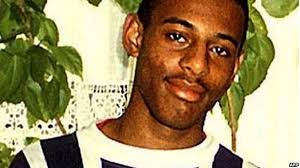Understanding the Derek Chauvin Case and Its Implications

Introduction
The case of Derek Chauvin, a former Minneapolis police officer, has become a focal point in discussions around police reform, racial justice, and law enforcement accountability in the United States. Chauvin was convicted for the murder of George Floyd, an incident that sparked worldwide protests and an urgent call for systemic change within police departments. Understanding the implications of this case is crucial for ongoing conversations about justice and reform in America.
The Incident and Trial
On May 25, 2020, George Floyd was arrested for allegedly using a counterfeit $20 bill. During the arrest, Chauvin knelt on Floyd’s neck for over nine minutes, an act that was recorded by bystanders and went viral. Floyd repeatedly stated that he could not breathe, ultimately leading to his death. This incident not only led to immediate local protests but catalysed a global movement addressing police brutality against Black individuals.
The trial of Derek Chauvin began on March 8, 2021. Chauvin faced charges of second-degree unintentional murder, third-degree murder, and second-degree manslaughter. On April 20, 2021, he was found guilty on all counts, making it one of the landmark verdicts in cases of police violence. Chauvin was sentenced to 22.5 years in prison, a sentence that has been seen as both a step towards accountability and a reflection of the systemic issues at hand.
Impact on Society
The conviction of Derek Chauvin ignited discussions about police reform across the nation. Various states and local governments have since considered or enacted legislation aimed at increasing police transparency and accountability. These include measures on body cameras, the use of chokeholds, and the establishment of independent review boards for police conduct.
Furthermore, the case raised awareness around the Black Lives Matter movement, with many advocates urging the public and policymakers to re-evaluate police practices and racial inequalities. As the nation continues to grapple with the issues brought to the forefront by Floyd’s death, there is ongoing debate about the effectiveness and necessity of proposed reforms.
Conclusion
The case of Derek Chauvin represents more than just a trial; it is emblematic of broader societal challenges related to race and justice in America. The outcome has significant implications for future policing policies and continues to influence public discourse on race relations. As we look ahead, the stories of those affected by police violence must remain central to the narrative of reform. The significance of this case serves as a reminder of the work that remains in the pursuit of justice and equality for all citizens.









